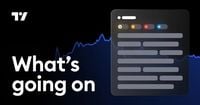On April 1, 2025, the Indian stock market faced a significant downturn as investors reacted to the impending imposition of reciprocal tariffs by the United States, announced by President Donald Trump. The BSE benchmark Sensex plunged 1,390.41 points, or 1.80%, closing at 76,024.51, marking the largest single-day drop in over a month. The Nifty index also felt the pressure, falling 353.65 points, or 1.50%, to settle at 23,165.70.
As the first trading day of the new financial year, the market opened on a negative note, with many investors opting to take profits off the table amid heightened uncertainty regarding international trade dynamics. The anticipated tariffs, which Trump referred to as "Liberation Day" for the U.S., are set to take effect on April 2, 2025, leading to widespread concern about their potential impact on India's trade advantages.
According to Siddhartha Khemka, Head of Research at Motilal Oswal Financial Services Ltd, "Indian equities faced sharp declines with the Nifty tumbling 1.5% amid heightened concerns over US President Trump's reciprocal tariff plans." The market capitalisation of BSE-listed firms eroded by ₹3,44,058.44 crore, bringing the total down to ₹4,09,43,588.06 crore (approximately $4.78 trillion). This loss translates to a staggering drop in investors' wealth by ₹3.44 lakh crore on the same day.
The decline was widespread, with 28 of the 30 Sensex components ending lower. Major laggards included HCL Tech, Bajaj Finserv, HDFC Bank, Bajaj Finance, and Infosys, all of which saw significant declines. Specifically, HDFC Bank and ICICI Bank accounted for over 40% of the Sensex’s decline, with HDFC Bank alone contributing 400 points and ICICI Bank 189 points to the drop.
In contrast, IndusInd Bank and Zomato were among the few gainers, with IndusInd Bank rising over 5% and Zomato closing marginally higher. The BSE midcap index fell by 1.04%, while the smallcap index managed to edge up slightly by 0.07%. This mixed performance highlighted the resilience of some segments of the market, even as broader indices suffered.
Sector-wise, realty stocks faced the brunt of the market's negativity, slumping by 3.05%, followed by consumer durables and IT sectors, which fell by 2.51% and 2.24%, respectively. The only sectoral gainers were telecommunications and oil & gas, which managed to stay afloat amidst the turmoil. The overall market breadth was positive, with 2,708 stocks advancing against 1,344 decliners, indicating that while large caps struggled, smaller stocks found some footing.
Prashanth Tapse, Senior VP of Research at Mehta Equities, noted that "investors slashed their equity bets ahead of the implementation of Trump’s reciprocal tariffs on imported goods starting Wednesday, as the decision is expected to impact India’s trade advantage with the US." This sentiment was echoed throughout the trading floor, as many market participants took a cautious approach.
Moreover, foreign portfolio investors (FPIs) were net sellers to the tune of ₹5,901.63 crore on the same day, while domestic institutional investors (DIIs) bought shares worth ₹4,322.58 crore, as per provisional data from the BSE. This shift in investment strategy reflects the growing apprehension surrounding international trade relations.
As the day progressed, the Nifty index opened negatively at 23,341 and continued to decline, forming a bearish candle on the daily chart. The index faced resistance around its 50-week moving average and ultimately closed below the critical support level of 23,200. Immediate support is now observed around 23,000, with resistance at approximately 23,500.
Technical analysts are closely monitoring these levels, particularly after the Nifty Bank index, which opened at 51,178.15 and reached an intraday high of 51,683.85 before settling at 50,827.50, breached its 200-day moving average. The bearish sentiment in the market is palpable, with many experts advising caution in the wake of ongoing tariff discussions.
Looking ahead, Rupak De, Senior Technical Analyst at LKP Securities, stated that "the index has experienced a sharp decline, approaching the 50EMA on the daily chart." He emphasized that maintaining this level could be crucial for market stabilization, but a decisive breakdown below 23,115 could lead to further declines.
Despite the challenges, there were some recommendations for investors looking to navigate the current landscape. MarketSmith India suggested two stocks for purchase on April 2: Jio Financial Services Ltd, with a current market price of ₹230.42, and HDFC Life Insurance Co. Ltd, priced at ₹693. These recommendations come with specific buy ranges and profit goals, offering potential opportunities amidst the market's volatility.
As the market braces for the impact of the upcoming tariffs, analysts and investors alike are keeping a watchful eye on global developments and their implications for the Indian economy. The uncertainty surrounding international trade relations continues to shape market sentiment, making it a critical time for investors to stay informed and agile.






